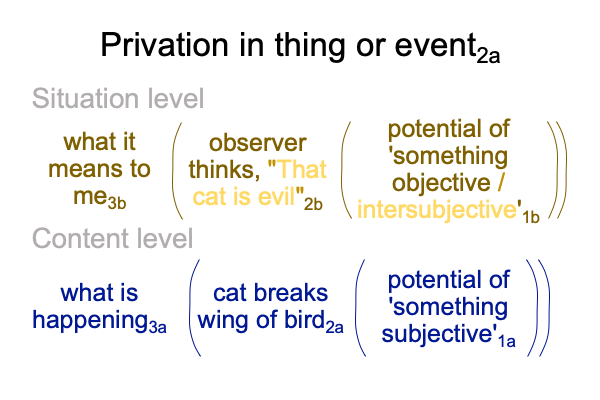0019 Here is a picture of the ongoing conversation between observer and graduate student.

0020 The party animal says what pops into “her” head. The graduate student replies that the declaration turns one actor in the event2a into a symbol of evil2b.
0021 The observer scratches “her” head, asking, “Did God create the symbol?”
Ah, the mind-dependent reality of a symbol2b may enter into the slot of the phantasm2b as a stand-in for the mind-independent reality of the cat’s action2a.
Or so, the graduate student judges2c.
0022 Clearly, the cat cannot be evil, since the cat acts out its perfection. The cat is what it is. But, if the cat were human, then such injurious action would be immoral, if not illegal. Thus, the cat’s action becomes a symbol of what ought not to be. The graduate student’s well-trained intellect brings what is into relation with what ought to be.
The phantasm2b, first objective1b in the observer3b, then intersubjective1b in both observer3a and student3a, supports the formation of a suprasubjective judgment2c. If the observer3b follows the rules of reason, agreement1a resonates with truth1c. The same agreement1a might happen if the observer3b is enthralled by the graduate student3b, or visa versa.
